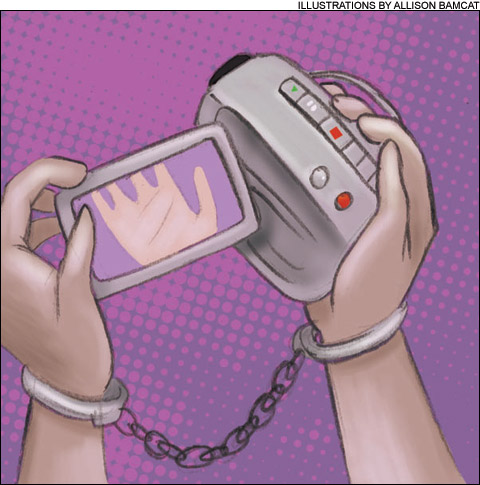
Ed Davis
Boston's top cop should call off camera crusade
The 1991 video of Rodney King being beaten by the Los Angeles Police is one of the iconic artifacts of the pre-YouTube age. For the first time, we understood that ordinary citizens using readily available media tools could hold their government accountable in ways that had previously not been possible.
But if the incident had taken place on the streets of Boston, then George Holliday — the bystander who shot the King video — might very well have been arrested and charged with violating the privacy of the police officers.
Massachusetts, you see, is one of a dozen states that require the consent of all parties before an audio recording can be made. (A video recording without sound is not covered by the law, which was originally drafted with phone conversations in mind.) And the Boston Police, under Commissioner ED DAVIS, have aggressively enforced that law by going after citizens who record their actions — even on public streets.
Earlier this year, the New England Center for Investigative Reporting (NECIR), in an article published by the Boston Globe, told the stories of several people who had taken out their cell phones to record instances of possible police misconduct, only to find themselves in handcuffs.
"The police apparently do not want witnesses to what they do in public," Sarah Wunsch, staff attorney for the ACLU of Massachusetts, told the NECIR.
According to the NECIR report, the police have taken some pains to stay on what they believe is the right side of the law. There is evidence that they make sure a person's video camera has audio capabilities before making an arrest, and in several cases they have declined to arrest people who were using their cell-phone cameras openly rather than surreptitiously.
Nevertheless, experts say the BPD is misinterpreting the law. "The police are basing this claim on a ridiculous reading of the two-party-consent surveillance law, requiring all parties to consent to being taped," constitutional lawyer Jonathan Turley told the tech blog Gizmodo. "I have written in the area of surveillance law and can say that this is utter nonsense."
Worse, it's nonsense that prevents the public from performing a vital watchdog role. It's time for Davis to tell his officers to concentrate on arresting criminals rather than camera-wielding members of the public.
...